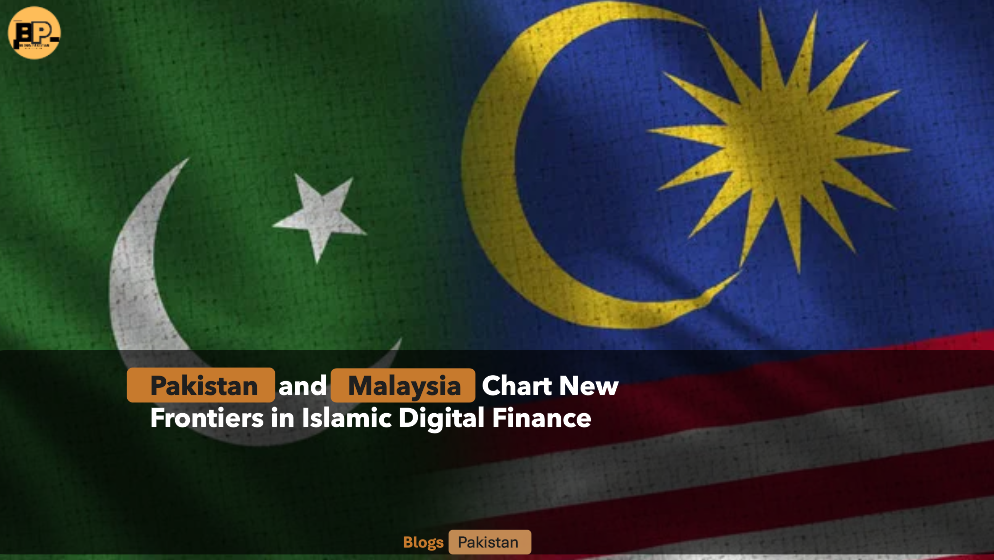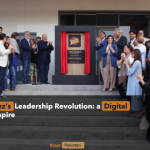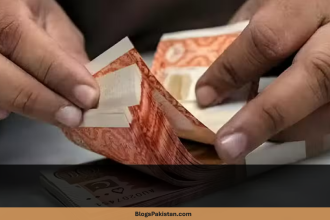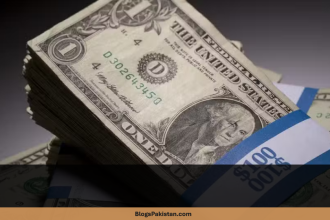The digital finance landscape is witnessing a groundbreaking collaboration as Pakistan and Malaysia join forces to explore blockchain innovation and Shariah-compliant financial solutions. This partnership, marked by high-level dialogues and strategic appointments, signals a transformative shift in how Muslim-majority nations approach the fusion of technology and ethical finance. Let’s unpack the key developments and their potential to reshape regional economies.
A Strategic Alliance in the Digital Economy
In a landmark meeting held in Jakarta, Pakistan Crypto Council (PCC) CEO Bilal Bin Saqib and Malaysia’s Foreign Minister Mohamad Bin Haji Hasan laid the groundwork for cross-border cooperation in fintech. The discussions centered on three pillars:
- Blockchain infrastructure development
- Regulatory frameworks for digital assets
- Shariah-compliant financial instruments
This alignment leverages Malaysia’s reputation as a global leader in Islamic finance—a sector valued at over $3 trillion—and Pakistan’s burgeoning tech talent pool. By combining strengths, both nations aim to create scalable models for ethical digital finance that could set benchmarks for OIC (Organization of Islamic Cooperation) countries.
Why Blockchain and Islamic Finance?
Blockchain’s transparency and security align closely with Shariah principles, which emphasize risk-sharing and asset-backed transactions. For instance, smart contracts (self-executing agreements on blockchain) can automate profit-sharing arrangements in Islamic banking, reducing administrative costs. Malaysia’s success with blockchain-based sukuk (Islamic bonds) has already demonstrated this synergy, attracting investors from the Gulf and Southeast Asia.
Pakistan, meanwhile, seeks to modernize its financial ecosystem. With only 24% of adults holding bank accounts, digital wallets and decentralized finance (DeFi) platforms could bridge this gap while adhering to ethical standards.
Binance’s CZ Steps into a Advisory Role
A pivotal moment in this collaboration came with the appointment of Changpeng Zhao (CZ), founder of Binance, as strategic advisor to the Pakistan Crypto Council. This move, announced during a high-profile meeting in Islamabad attended by Pakistan’s Finance Minister Senator Muhammad Aurangzeb and regulatory heads, underscores the government’s commitment to credible crypto governance.
CZ’s Vision for Pakistan
- Regulatory Sandboxes: Creating safe environments for testing blockchain solutions without full-scale regulatory burdens.
- Fraud Prevention: Implementing Binance’s AI-driven compliance tools to combat money laundering.
- Market Education: Developing Urdu-language resources to demystify crypto for Pakistan’s 230 million population.
This partnership is timely. Pakistan ranked third in Chainalysis’ 2023 Global Crypto Adoption Index, reflecting massive grassroots interest in digital assets despite regulatory ambiguity. CZ’s expertise could help transform this informal adoption into a structured ecosystem.
Harmonizing Regulations: A Dual Approach
Both nations emphasized the need for synchronized policies during their Jakarta talks. Key focus areas include:
Unified Crypto Licensing
Malaysia’s Securities Commission (SC) has already approved 15 digital asset exchanges. Pakistan’s SECP is now studying Malaysia’s framework to design a hybrid model that accommodates local needs. Expect:
- Stricter KYC protocols for crypto exchanges
- Tax incentives for blockchain startups
- Clear guidelines for tokenized sukuk
Cross-Border Payment Systems
Discussions touched on leveraging blockchain for remittances—a critical area for Pakistan, which received $24 billion in overseas worker transfers in 2023. A Malaysia-Pakistan blockchain corridor could slash transfer fees from 7% to under 2%, saving citizens millions annually.
Investing in Talent and Web3 Education
Human capital emerged as a recurring theme. Initiatives in the pipeline:
Web3 Academic Partnerships
- Malaysia’s International Islamic University will collaborate with Pakistani institutions like LUMS to launch certifications in blockchain development and Islamic fintech.
- Virtual internships with Malaysian crypto exchanges for Pakistani students.
Hackathons and Incubators
A joint “Ethical DeFi Hackathon” is planned for late 2024, focusing on solutions for zakat (charity) distribution and halal supply chain tracking. Winners will receive seed funding from a $5 million grant pool backed by both governments.
Challenges on the Horizon
While optimism abounds, hurdles remain:
- Energy Costs: Blockchain operations require significant power—a concern for Pakistan amid ongoing energy crises.
- Geopolitical Perceptions: Balancing innovation with global financial monitoring bodies like FATF, which has previously gray-listed both nations.
- Public Trust: Overcoming skepticism about crypto in conservative communities through fatwas (religious edicts) endorsing compliant projects.
The Bigger Picture: A Blueprint for OIC Nations
This partnership isn’t just bilateral—it’s a potential template for the 57-member OIC. Indonesia and Saudi Arabia have already expressed interest in joining future dialogues. Success here could catalyze:
- An Islamic digital currency pegged to gold or a basket of commodities
- Cross-OIC NFT platforms for Islamic art and heritage
- Shared regulatory databases to blacklist fraudulent projects
Resources for Further Exploration
- Malaysia’s Islamic Fintech Roadmap 2025 (SC Malaysia)
- Pakistan’s Draft Crypto Policy 2024 (Finance Division)
- Online Course: “Blockchain for Islamic Finance” (Coursera)
As Pakistan and Malaysia navigate this uncharted territory, their willingness to blend tradition with cutting-edge tech could redefine finance for the Muslim world—and beyond.










